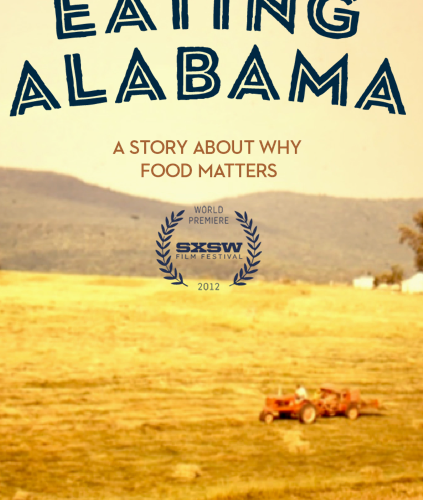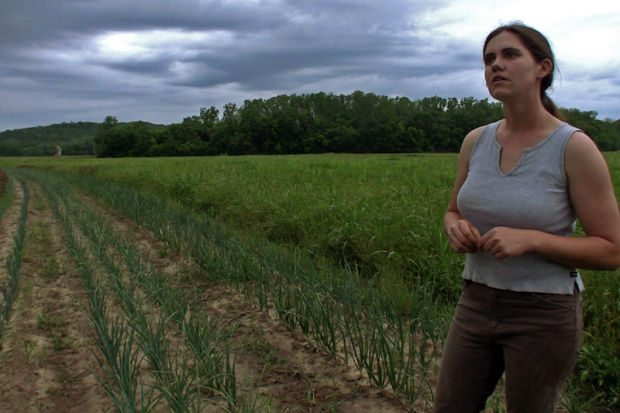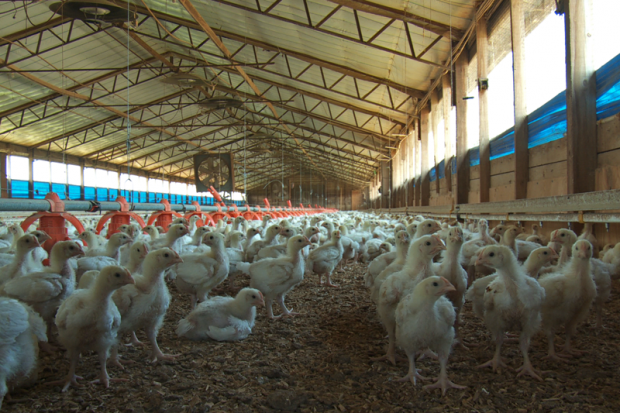A running theme in SXSW is urbanites returning to the land. Either that or as sometimes happens when you’re seeing 3-6 screenings a day, unconscious themes never intended by the programmers immerge. Eating Alabama, a first-person documentary by Andrew Beck Grace, follows Grace and his wife, as they return to Alabama and start a year-long project to eat only locally sourced Alabama foods. The problem is this way of life has disappeared.
Structured as an essay film, Grace is a likeable narrator, opening the film on a hunting expedition; he explains he is uncomfortable holding a gun. The Graces do not restrict themselves to vegetables, although they do enlist two friends Joe and Sarah, also likeable figures, and start growing their own foods, even going so far as to plant a victory garden.
Along the journey, which descends into madness as the young couples travel on an illogical shopping trip from farmers market to farmers market, rejecting items they can’t verify were sourced in Alabama (verses “Distributed by” an Alabama firm). They go hunting for missing components including soy beans, 90% of which produced in the United States are the Round-Up Ready variety, a Monsanto product (Monsanto famously has filed law suits against farmers who save seed verses purchasing a new supply if the pest resistant seed).
The film combines the modern journey into an inquiry into the past; we learn the filmmaker’s family were not plantation owners, but poorer farmers who worked the land, eating fresh, seasonally and locally. There is a desire to return to connecting food back to the farmers, however the missing connection is, as Grace discovers, this old man’s method of production, which is dying.
Searching, he pays a visit to a younger farmer, an urban farmer in Bingham, with his occupation riddled with problems, despite its appeal and interest. The film doesn’t aim to debunk any myths, and it ends with awareness. In truth, to be sure, industrial processes have made life easier (especially when we see the process by hand of turning wheat into fresh baked bread).
The film is structured as an essay but is light and conversational, as if you were sitting down to dinner with old friends you haven’t seen in a while. It is not a hard-hitting expose like Food Inc but a reflection on our disconnection from the land, land in Alabama that has somewhat of a troubled history. A personal and historical tale, it strikes a powerful and entertaining balance that southern first person documentarians (such as Godfrey Cheshire’s Moving Midway) are achieving by unpacking family and regional history. True to the aspirations of “going local.”



